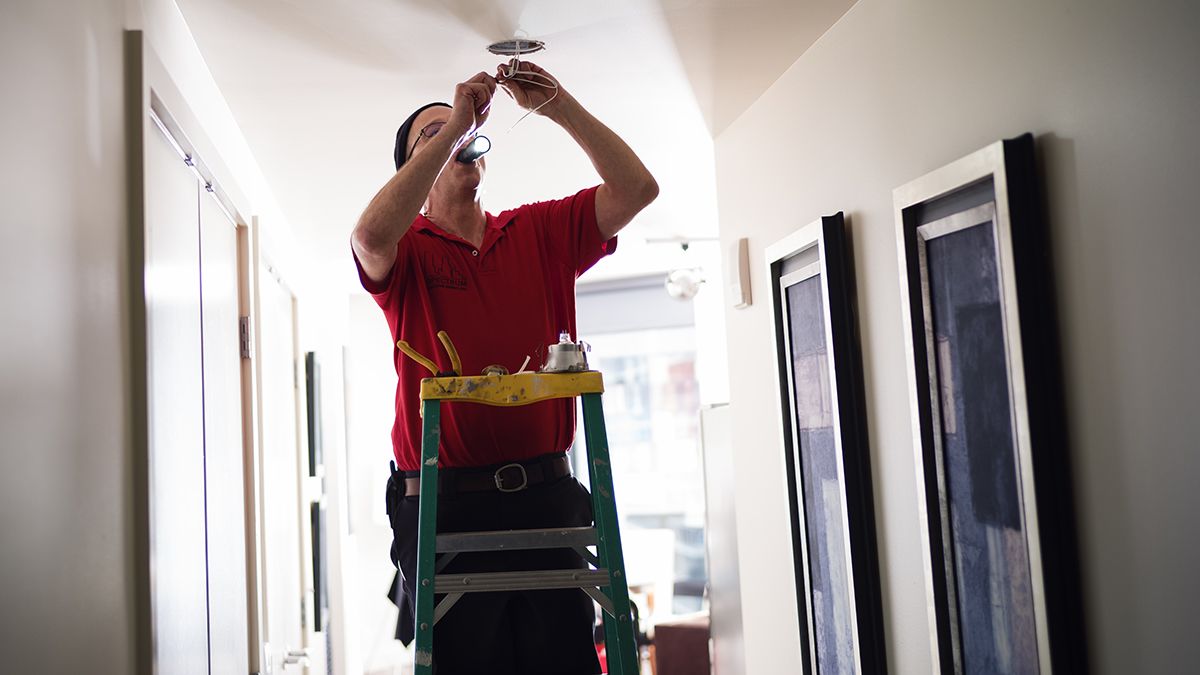
When it comes to home repairs and maintenance, hiring a handyman can be a convenient and cost-effective solution. Whether you need help with minor fixes, installations, or renovations, a handyman possesses the skills and expertise to tackle various tasks around the house. However, one common question that arises when considering hiring a handyman is: how much do they charge per hour? Understanding the average hourly rates for handymen can help you budget accordingly and ensure transparency in your financial planning. In this article, we will explore the factors that influence handyman costs and provide insights into what you can expect to pay for their services.
Understanding the Importance of Hiring a Handyman
One important aspect to consider when hiring a handyman is their hourly rate. The cost of hiring a handyman can vary depending on several factors such as their experience, location, and the type of job required. Generally, handymen charge an average hourly rate ranging from $30 to $75. However, it is important to keep in mind that this rate may not include the cost of materials or any additional fees that may be required for specialized tasks.
Understanding the importance of hiring a handyman goes beyond just considering the hourly rate. Handymen are skilled professionals who have expertise in various areas such as plumbing, electrical work, carpentry, and general repairs. Hiring a handyman can save you time and hassle by ensuring that your home maintenance and repair tasks are completed efficiently and effectively. Moreover, hiring a professional handyman ensures safety in your home repairs. DIY projects might seem appealing to save money but can often lead to costly mistakes or even accidents if not executed properly. By hiring a qualified handyman, you can have peace of mind knowing that the job will be done correctly and safely without compromising the integrity of your home.
Factors that Influence Hourly Rates
Factors that influence hourly rates for a handyman can vary depending on various factors. One significant factor is the location or geographical area where the handyman operates. Rates can differ significantly between urban and rural areas, as well as between different regions or states. For example, handymen in metropolitan cities might charge higher rates due to the higher cost of living and increased competition.
Another crucial factor influencing hourly rates is the level of experience and expertise possessed by the handyman. Handymen with extensive experience or specialized skills in certain trades may command higher rates compared to those who are just starting out or have limited knowledge. The complexity of the tasks performed can also impact the rate charged by a handyman, as more intricate projects may require additional time, effort, and skills. Additionally, factors such as demand and availability can influence hourly rates for handymen. During peak seasons or times when there is high demand for their services, handymen may increase their rates to reflect this surge in requests. On the other hand, if there is low demand or an oversupply of handymen in a particular area, prices may be more competitive and lower than average. It’s essential for customers to consider these factors when hiring a handyman to ensure they receive fair pricing while also obtaining quality services that meet their needs.
Average Hourly Rates for Different Services
When it comes to hiring a handyman, the average hourly rate can vary depending on the specific service being provided. For general handyman services such as minor repairs, maintenance tasks, or assembly work, the average hourly rate typically falls between $50 and $80. However, keep in mind that this rate may also be influenced by factors such as location and experience level.
For specialized services like plumbing or electrical work performed by a handyman, the average hourly rate tends to be slightly higher. Plumbing services can range from $60 to $90 per hour, while electrical work might cost between $65 and $100 per hour. These rates reflect both the expertise required for these specific tasks and the potential risks involved. It is important to note that these figures are just averages and can vary greatly depending on various factors. Therefore, it is always recommended to obtain multiple quotes from different handymen in your area before making a final decision. This allows you to compare rates and ensure you are getting fair pricing for the specific services you require.
Additional Costs to Consider
When hiring a handyman, it is important to factor in additional costs that may arise. While the hourly rate is a significant consideration, there are other expenses to keep in mind. Firstly, materials and supplies can add up quickly. Whether it’s paint, nails, or any other necessary equipment for the job at hand, these costs can easily escalate depending on the complexity of the project.
Secondly, some handymen may charge a call-out fee or have a minimum service charge. This means that even if your task only takes them 15 minutes to complete, you will still be responsible for paying their predetermined minimum fee. It’s crucial to inquire about any potential call-out fees before hiring a handyman to avoid unexpected expenses. Furthermore, if your project requires specialized skills or equipment that the handyman does not possess, they may need to subcontract certain tasks. In this case, you should be prepared for additional charges as subcontractors usually charge separately for their services. Understanding these potential extra costs will help you budget more accurately and ensure there are no surprises when dealing with a handyman’s fees.
Tips for Negotiating a Fair Rate
When it comes to negotiating a fair rate with a handyman, there are several tips you should keep in mind. Firstly, do your research and gather information on the average rates charged by handymen in your area. This will give you an idea of what is considered reasonable and help you set realistic expectations. Additionally, be specific about the scope of work required and provide as much detail as possible to the handyman during the negotiation process. Clear communication can ensure that both parties are on the same page regarding the tasks that need to be completed. Lastly, don’t hesitate to negotiate! Remember that rates are often flexible, especially if you are hiring for multiple projects or offering long-term work.
Negotiating a fair rate with a handyman also involves understanding their pricing structure. Some handymen may charge per hour while others prefer fixed project-based rates or even charge based on materials used. It’s important to have this conversation upfront to avoid any misunderstandings later on. Moreover, consider getting multiple quotes from different handymen before finalizing your decision; this will allow you to compare prices and choose the best option for your needs and budget. Ultimately, negotiating a fair rate requires open communication, thorough research, and being willing to find common ground that benefits both parties involved in the agreement.
How to Determine If the Price is Fair
When it comes to hiring a handyman, determining if the price is fair is crucial. One important factor to consider is the location. Prices for handymen can vary significantly depending on where you live. It’s essential to research local rates and compare them with the quotes you receive.
Another aspect to consider is the complexity of the task at hand. Different handyman jobs require varying levels of skill, expertise, and time commitment. A simple task like fixing a leaky faucet will likely have a different price compared to more complex projects such as remodeling a bathroom or installing electrical fixtures. Furthermore, it’s always recommended to obtain multiple quotes from different handymen in your area before making a decision. This will allow you to assess whether an estimate falls within the typical range for similar jobs and ensure that you are getting fair pricing for the services being provided.
Ultimately, determining if the price is fair when hiring a handyman involves considering factors such as location, complexity of the job, and obtaining multiple quotes for comparison. By doing thorough research and weighing these factors carefully, you can make an informed decision about whether or not the quoted price aligns with industry standards and accurately reflects both quality of workmanship and value for money.
Benefits of Hiring a Professional Handyman
One of the main benefits of hiring a professional handyman is that they can save you time and effort. Instead of spending your weekends trying to tackle various home repair tasks, a handyman can come in and efficiently handle all your needs. Whether it’s fixing a leaky faucet, installing shelves, or repairing drywall, their expertise allows them to complete these tasks quickly and effectively.
Another advantage of hiring a professional handyman is their experience and knowledge in different areas. They have the skills to handle various types of repairs, maintenance, and installations around your home. This means that you don’t need to hire multiple contractors for different projects; instead, you can rely on one skilled individual who can take care of everything. On average, handymen charge between $30 to $60 per hour for their services. However, keep in mind that rates may differ based on the specific task at hand or if any additional materials are required. It’s important to discuss pricing upfront with your chosen professional so that both parties are clear about expectations and costs involved.
Conclusion: Making Informed Decisions for Home Repairs.
In conclusion, the cost of hiring a handyman can vary widely depending on various factors such as location, experience, and the complexity of the job. While some handymen may charge as low as $20 per hour, others may charge upwards of $100 per hour for specialized tasks. It is important to thoroughly research and compare prices from different handymen in your area to ensure you are getting a fair rate. Additionally, consider asking for references or reading reviews to gauge the quality and reliability of the handyman’s work. Remember that paying a higher hourly rate does not always guarantee better service, so it is crucial to find a balance between affordability and expertise. In addition to hiring a handyman, homeowners can also invest in their own maintenance and repair. Cleaning the house and yard is one of the most cost-effective ways to cut your utility bills.
ALSO READ / kitche -bath remodeling contractors





